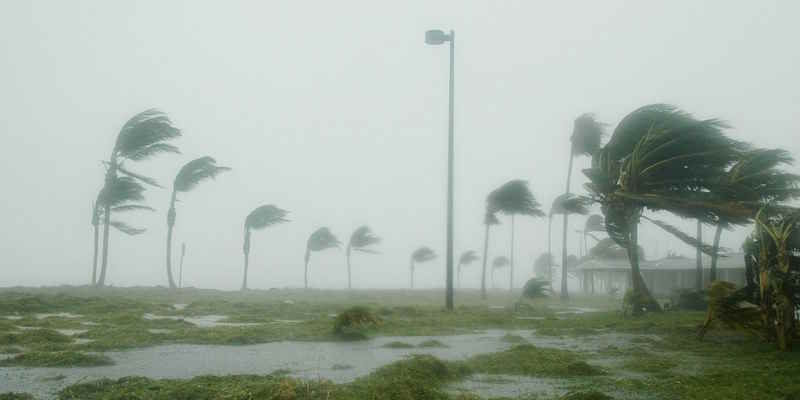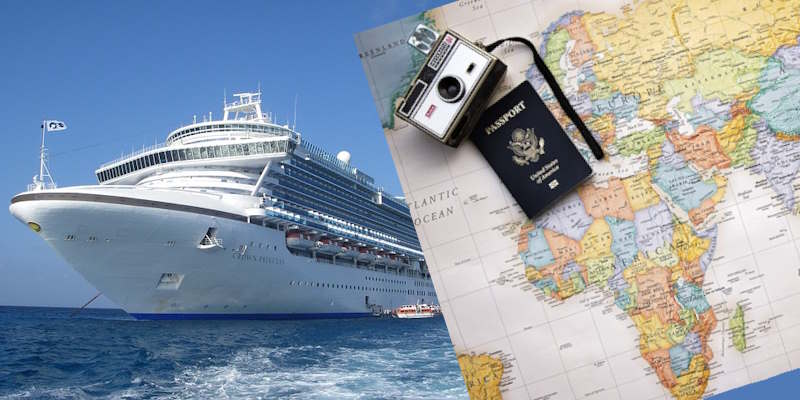Booking travel insurance for your cruise protects you financially from any unforeseen events. Imagine counting down the days to your dream cruise, only to face a setback—an unexpected illness forces you to cancel at the last minute. Your dream exotic cruise turns into a nightmare. You have the disappointment of missing the cruise and a substantial financial loss.
Cruise travel insurance is your financial safety net, ensuring peace of mind before and during your vacation. It covers a wide range of unexpected events, from trip cancellations to medical emergencies, itinerary changes, and natural disasters. Think about your disappointment if bad weather caused flight delays and you missed the cruise ship’s departure. Cruise travel insurance can cover many of these scenarios, but coverage varies by policy and provider.
I’ll explore the essential aspects of travel insurance for a cruise vacation in this comprehensive guide. Based on personal experience, extensive research, and advice from other passengers, I hope to give the best recommendations on decisions about cruise travel insurance.
Should You Buy Travel Insurance for Your Cruise?

From my experience, booking travel insurance for cruise vacations is always recommended. It has saved me from significant financial losses and stress multiple times. Cruise insurance plans are tailored specifically for cruising, offering coverage for medical expenses, flight delays, and trip interruptions. They also cover ship evacuations and missing your cruise departure. I’ve found peace of mind knowing I’m protected against unexpected mishaps.
Of course, travel insurance policies differ between insurance companies. So remember to read the terms and coverage options of insurance plans carefully. Knowing your coverage limit, coverage for pre-existing medical conditions, and trip cancellation policies is crucial.
Eleven Reasons Why Travel Insurance is Essential for Cruisers
Cruising isn’t always smooth sailing, and travel insurance is the best way to calm choppy waters when things don’t go to plan. Most travelers agree that a comprehensive travel insurance policy is the best way to provide financial protection and peace of mind against unexpected disruptions on a cruise.
Here are eleven reasons a cruise insurance policy is vital for your next trip.
1. Last-minute cancellation and interruption
Travel insurance coverage for a cruise should include cancellation and trip interruption insurance. I remember when a family emergency forced me to cancel my cruise at the last minute. Without trip cancellation coverage, I would have lost the entire cost of my trip.
Many cruise lines offer partial refunds or credit for cancellations with less than 75 days before the departure date. However, you may lose all your money if you cancel less than 30 days before departure.
Trip cancellation insurance covers nonrefundable trip expenses due to a legitimate reason for canceling your cruise. For example, Allianz Travel Insurance lists reasons for trip cancellation, including the death of a family member or traveling companion, natural disaster, terrorist activity, accident on the way to the departure port, or divorce. However, it is important to verify specific policy details as not all policies cover all these scenarios.
Trip interruption coverage refers to legitimate reasons to return home before the cruise ends. The reasons for trip interruptions are generally similar to reasons for trip cancellations. The coverage can reimburse the total trip cost, depending on the policy.
I’ve seen that cruise line operators also offer trip cancellation or interruption coverage as an add-on. But after looking closely at the terms and conditions, I saw their coverage wasn’t great. It’s usually more limited than private travel insurance, and they rarely reimburse the entire trip’s cost.
Without the coverage, you’d be liable for all transportation costs to return home, which may include a helicopter flight from the cruise ship.
2. Emergency dental and medical assistance

Coverage for emergency medical treatment and costs is a lifesaver on a cruise ship. As you’re enjoying a tropical cocktail on the lido deck, the last thing on your mind is a medical crisis. However, onboard medical problems can happen quickly, and medical costs skyrocket.
Medical coverage pays for expenses during the trip, including onboard evaluation, treatment, and evacuation if necessary. According to Allianz Global Assistance, 53% of all cruise-related insurance claims are due to illness, highlighting the importance of having medical coverage while on a cruise.
It’s important to note that many national health insurance plans, including Medicare in the U.S., do not cover medical expenses when a ship is more than six hours from a U.S. port. The CDC reports that evacuation back to the U.S. can cost up to $250,000.
According to Squaremouth travel insurance, one in five medical insurance plan payouts are related to medical bills, costing an average of $736.56. The highest in 2022 was $18,847.91.
Medical expense coverage ensures you can enjoy your cruise without worrying about unexpected medical bills, allowing you to focus on creating unforgettable memories.
Repatriation coverage
In the unfortunate event of a death while on a cruise, repatriation coverage becomes crucial. This coverage includes the costs associated with returning the deceased’s body to their home country. Without this coverage, the financial burden of repatriation can be overwhelming for the deceased’s family, with costs often reaching thousands of dollars.
3. When you miss the boat

Missing embarkation at your departure point or port of call can be a cruiser’s worst nightmare. Therefore, ensure your cruise insurance plan includes coverage for missing the ship. Imagine sitting in the airport, and your flight is delayed, causing you to miss the cruise departure. Or your shore excursion taxi breaks down, and you cannot get to the port on time.
When I researched this topic, I came across several forum posts where travelers shared their experiences: “Getting the right cruise insurance can cover your travel expenses if you miss your cruise and need to catch up at the next port. This coverage has saved my vacation before, making the cost of cruise travel insurance totally worth it. Additionally, the insurance offers 24-hour assistance to help coordinate the logistics.”.
4. Cancel for Any Reason (CFAR)
CAFR (Cancel for Any Reason) is a type of travel insurance for cruise trips that allows policyholders to cancel their trip for any reason not covered by standard policies and still receive partial reimbursement. It provides greater flexibility and peace of mind, especially for unexpected events.
One cruiser shared their experience: “Cancel for Any Reason coverage has been a game-changer for me. When I had to cancel a cruise at the last minute due to an unexpected event, CFAR coverage reimbursed 75 percent of my trip costs. It was a financial lifesaver, turning a stressful situation into a minor setback.”
Standard policies do not typically cover this type of cancellation. The best insurance policies reimburse up to three-quarters of your entire trip costs.
Talking with other passengers about their experiences let me see how valuable the coverage can be. Reasons I’ve heard from other cruisers for using CFAR include the following:
- Fear of travel due to wildfires, lousy weather, pandemics, or unrest in the destination country
- Conflicting plans
- Passport issues
- A traveling companion’s inability to travel.
Standard travel insurance policies typically cover cancellations for specific, predefined reasons such as illness, injury, or severe weather. However, they generally do not cover cancellations for reasons outside these predefined events. According to insurance industry experts and sources such as Squaremouth and Business Insider, adding Cancel for Any Reason (CFAR) coverage generally increases the premium by about 40-50% compared to standard travel insurance policies. For example, on a standard travel insurance policy that costs $200, you should expect to pay an additional $80 to $100 for CFAR coverage.
5. Adventure activities

Are you planning on scuba diving, jet skiing, parachuting, caving, or bungee cord jumping on a shore excursion? If so, ensure that you have medical insurance coverage for extreme sports or dangerous activities. Standard cruise insurance doesn’t include medical coverage for injuries sustained while participating in high-risk pursuits.
It’s worth shopping around before booking a comprehensive travel insurance plan for high-risk activities. I’ve found that prices between travel insurance companies vary significantly for extreme adventures. Sometimes, you might get a better deal through a specialist insurance company specializing in certain activities.
6. Baggage insurance

Can you picture yourself arriving at your dream destination only to find that your luggage didn’t make the trip? Once, I arrived at my cruise destination only to discover my luggage was lost. My travel insurance covered the cost of essential items until my luggage arrived. The relief was tremendous, knowing I wouldn’t be out of pocket for essentials.
This experience taught me to always include coverage for baggage delays in my travel insurance policy.
7. Natural disasters and weather disruptions

Imagine enjoying a dream Caribbean cruise only to suffer severe disruption due to an unseasonal hurricane. A friend on a Caribbean cruise faced severe disruption due to an unexpected hurricane. Her insurance covered the unused portion of her trip costs, helped book extra hotel stays, and paid out compensation.
Adding natural disaster coverage to a trip cancellation policy can offer the following protection:
- Trip cancellation or interruption
- Non-medical evacuation
- Travel delays or missed connections due to severe weather
It’s good to note that cancel-for-any-reason insurance policies can be helpful when planning a cheap cruise in the Caribbean during hurricane season.
8. Job loss protection

Most comprehensive travel insurance plans include employment layoff clauses. Personally, I’ve never had to use this as I’m self-employed and work remotely. A colleague of mine did. He lost his job just before a planned cruise, and his travel insurance reimbursed him for nonrefundable trip expenses, offering financial relief during a difficult time.
Some travel policies require you to have been in continuous employment for a certain period, often around one year, but this can vary between policies and providers.
When researching cruise travel insurance plans, I also discovered other job-related policies that may be useful for you. These cancel-for-work reasons include the following:
- Your boss requires you to work during a previously scheduled trip
- You must relocate over 250 miles to a new location to keep your job
- Unforeseen job obligations prevent you from going on the cruise
As with all insurance policies, check the small print to see the coverage details related to cancel-for-work reasons.
9. Family member’s illness

An illness in the family can derail even the best-laid travel plans. A comprehensive cruise insurance policy should cover costs for canceling or interrupting your voyage due to a serious medical crisis in your family. This type of coverage has helped countless travelers prioritize their families without worrying about losing their vacation investment.
10. Cruise disablement coverage

Cruise disablement coverage typically refers to compensation if the ship experiences mechanical failure or other issues that disrupt the cruise. Imagine being confined to the vessel or your cabin without food, power, restrooms, or water. In that case, insurance companies like Berkshire Hathaway Travel Protection compensate you up to $500.
11. Peace of mind
One of the most significant benefits of cruise insurance is the peace of mind it provides. Let’s face it: cruises are not cheap vacations, and in many cases, you must pay nonrefundable deposits many months before departure to secure the best prices. Insuring your cruise means you don’t have to worry if unexpected events occur.
Take the case of a seasoned cruiser who once faced a sudden medical emergency onboard. Comprehensive insurance covered all medical expenses, allowing them to access the best treatment with financial worries.
Another traveler shared how their insurance reimbursed them for a canceled trip due to a family emergency, sparing them from a substantial loss.
Having cruise insurance means relaxing and enjoying your vacation, knowing you’re protected against any unexpected events. This assurance transforms potential stress into complete peace of mind.
Is Cruise Insurance Worth It?
From my experience, cruise insurance is always worth it. After all, cruises aren’t cheap, even if I get a great deal on the cruise fare. I’ve always found that travel insurance is affordable compared to the enormous out-of-pocket expenses for onboard medical care, emergency evacuation, canceling a trip, or baggage delay.
Where to Find Cruise Travel Insurance
Thanks to the right cruise travel insurance, I’ve always enjoyed worry-free cruises, even when unexpected issues arose. I’ve also seen how other passengers who don’t have sufficient insurance coverage get stressed out when things don’t go to plan. Most cruisers agree that accessing onboard emergency medical attention is extremely expensive, making medical insurance crucial.
When choosing travel insurance for a cruise, you typically have three options. Here’s what has been my experience with each.
Third-party insurance companies
Third-party insurance companies usually provide the most robust coverage. For example, policies from providers like AIG Travel, Allianz Travel Insurance, and Travelex Insurance often include benefits such as missed connection coverage, missed port-of-call coverage, and cruise disablement coverage. Stan Sandberg, co-founder of TravelInsurance.com, notes, “Many plans now offer benefits that will specifically appeal to cruise travelers, such as missed connection and missed port-of-call coverage”
Purchasing insurance from third-party companies usually provides the most robust coverage. Many travel insurance companies offer tailored plans covering various cruise-specific scenarios. The benefits include travel medical expenses, evacuation coverage, travel delay, baggage loss and delay, and cancel-for-any-reason.
However, comparing different policies is essential to ensure you get the best deal. For example, insurance coverage for cruises to Alaska differs from cruises to the Caribbean. Additionally, some destinations, like Antarctica and the Galapagos, may require specific insurance coverage.
Pros and cons
Pros: The most comprehensive range of coverage for cruise-related events with generous limits
Cons: It may be more expensive than cruise line insurance and requires additional research
Cruise line travel insurance plans

Many cruise lines offer their own travel insurance policies. These policies are convenient to purchase as part of your cruise booking and are specifically designed for your cruise. However, I’ve found that they’re not as comprehensive as third-party plans. Seasoned cruise passengers tend to choose third-party insurance providers.
Pros and cons
Pros: Convenient to purchase and specifically tailored for your cruise
Cons: Generally less comprehensive, lower coverage limits, fewer options to customize, claims process is clunky
Credit cards with travel insurance

Some credit cards offer travel insurance perks for cardholders. This can include trip cancellation, interruption, and even limited medical coverage. While they may provide travel medical expenses, they don’t offer robust coverage for cruise vacations. So, review the terms carefully to see your insurance coverage on a cruise.
Pros and Cons
Pros: No additional cost if you already have the card, decent baseline coverage, and easy to use.
Cons: Coverage limits may be lower, not as comprehensive, and may not cover all cruise-specific needs.
Recommended Sites for Comparing Travel Insurance
When it comes to selecting the right travel insurance for your cruise, the options can be overwhelming. Through conversations with other cruisers on forums like Cruise Critic, I discovered that InsureMyTrip.com and AARDY.com are frequently recommended for comparing travel insurance options. These platforms have earned positive feedback from the cruising community for their unbiased advice and user-friendly interfaces. Many travelers have shared their experiences of how these sites helped them find the appropriate policy for their needs.
InsureMyTrip.com
InsureMyTrip has been a resource for over 20 years, assisting travelers in finding suitable insurance policies for their unique travel concerns. With its straightforward quote process, travelers can compare top plans from trusted providers. Their licensed insurance agents are available to assist before, during, and after your trip, which many travelers find invaluable. As the nation’s original travel insurance comparison site, InsureMyTrip’s extensive experience and specialization in travel insurance make it a reliable source for comprehensive coverage.
AARDY.com
AARDY.com is another top travel insurance marketplace in the USA, allowing travelers to compare policies from leading providers. Additionally, AARDY.com offers a resource page with detailed cruise company insurance reviews, providing further insights into what each cruise line offers. This information can be incredibly useful when making your decision. The high praise for AARDY.com from frequent cruisers and travel forums underscores its reputation for helping travelers make informed decisions about their coverage.
Readability and Connection
In my search for the best travel insurance, I found that both InsureMyTrip.com and AARDY.com provided clear, concise information that was easy to navigate. The user-friendly nature of these sites, coupled with positive feedback from the cruising community, makes them excellent starting points for anyone looking to secure travel insurance for their next cruise.
Always Do Your Research
While InsureMyTrip and AARDY.com come highly recommended, it’s crucial to do your own research and read the fine print. Each trip is unique, and so are your travel insurance needs. By thoroughly reviewing your options, you can ensure that you select the best coverage for your specific situation.
Key Features to Look for in a Travel Insurance Policy
During my research, I came across several experiences shared by travelers. One person mentioned their struggle with understanding the components of cruise travel insurance: “I once bought medical-only insurance to save money, but I quickly regretted it. My flight was delayed, causing me to miss my cruise departure. It ended up costing me over $1,000 to catch up with the ship at the first port of call.”
Medical Coverage
Medical coverage is essential for any cruise insurance policy. It ensures you receive emergency treatment without worrying about excessive onboard medical costs. This feature is crucial, especially when traveling to countries where healthcare can be expensive.
Medical Evacuation

Medical evacuation coverage is vital if you require transport from the ship to an onshore medical facility. A member of the cruise crew told me he’s seen people get appendicitis, serious bone breaks, seizures, and severe cuts. Therefore, ensure insurance covers the costs of airlifts or additional transportation costs.
Pre-Existing Conditions
Coverage for pre-existing conditions is crucial if you have chronic health issues. This ensures the health insurance plan covers medical expenses related to pre-existing conditions. You may be eligible for a pre-existing condition waiver if you buy travel insurance within 14 days of the first deposit.
Missed Connection

Missed connection coverage is a must for any cruise traveler. It reimburses additional expenses if you miss a connecting flight or transport. This feature ensures you can catch up with your cruise at the next port without financial strain.
Missed Ports
Missed port coverage reimburses you if your cruise ship skips a scheduled stop. This feature is handy if you have planned excursions at specific ports. It ensures you don’t lose money on prepaid activities.
Cabin Confinement
Cabin confinement coverage compensates you if you are confined to your cabin due to injury or illness. This coverage can help offset the disappointment of missing out on cruise activities. You receive money up to the policy’s limit for each day in confinement.
Travel Delay
Travel delay coverage reimburses additional expenses incurred due to significant delays. It covers costs such as meals, accommodations, and transportation. This feature ensures you’re not out of pocket for unforeseen delays.
Accidental Death or Life-Changing Injuries
Accidental death or other serious injury coverage provides financial compensation to your beneficiaries. Insurance on a cruise offers peace of mind, knowing your loved ones will be cared for in the event of a tragedy. This feature is a crucial part of comprehensive travel insurance.
How to Make a Claim
Navigating the travel insurance claims process can feel overwhelming, especially when you’re dealing with the disappointment of a disrupted cruise. From my experience, both as a seasoned cruiser and someone who has helped others through this, I can assure you it’s not as daunting as it seems if you follow these steps:
1. Know Your Coverage Inside and Out
Before setting sail, take some time to really understand your travel insurance policy. It’s crucial to know what’s covered – from medical expenses and trip cancellations to lost luggage and more. This upfront knowledge can save you a lot of headaches later.
2. Keep Every Bit of Documentation

Think of your documentation as your lifeline. Whenever something goes awry, start collecting all relevant paperwork:
- Receipts: Whether it’s for medical treatments, extra accommodation, or transportation costs, keep them all.
- Reports: If your luggage goes missing, get an official report from the airport or cruise line. For medical issues, make sure to have a doctor’s note and hospital bills.
- Communications: Save all emails, messages, and notes from calls related to the incident and your claim.
Having all this ready will make the claims process much smoother.
3. Notify Your Insurer ASAP
If something does go wrong, don’t wait – contact your travel insurance provider immediately. Most have a 24/7 helpline for emergencies. Early notification can ensure you’re following the correct procedures right from the start.
4. Fill Out the Claim Form Carefully
When you get the claim form from your insurer, take your time filling it out. Accuracy is key here. Any mistakes or missing information can delay your claim.
- Personal Details: Double-check your contact information and policy number.
- Incident Description: Be as detailed and clear as possible about what happened.
- Itemized List: If you’re claiming for lost items, list each one along with its value.
5. Submit All Necessary Documentation
Attach all the required documents to your claim form. Typically, this includes:
- Proof of Travel: Keep your itineraries, boarding passes, and tickets handy.
- Proof of Loss or Damage: Police reports, photographs, and receipts will be essential.
- Medical Records: Make sure to include doctor’s reports, hospital bills, and prescriptions.
6. Follow Up Regularly
After you’ve submitted your claim, don’t just sit back and wait. Stay in touch with your insurer. If they need more information, provide it promptly. Keeping a record of all follow-up communications is also a good idea.
7. Be Patient but Proactive
Claims can take a while to process, particularly if they’re complex. However, if there’s a significant delay or if your claim is denied, follow up assertively. Know your rights and be prepared to escalate if necessary.
8. Appeal If Needed
If your claim is denied, don’t give up. Review the reason for the denial and gather any additional supporting evidence. Submit an appeal according to your insurer’s guidelines.
Tips for a Smooth Claims Process
- Be Honest and Accurate: Providing truthful and precise information is crucial.
- Stay Organized: Keep all your documents and communications in one place.
- Understand Your Policy: Knowing your coverage helps manage your expectations and actions.
Common Misconceptions About Cruise Travel Insurance
After chatting with many cruise passengers over several years, I discovered misconceptions about travel insurance.
Here are the top five myths I’ve heard about travel insurance:
Myth 1: “I don’t need Insurance for a short cruise”
Travel insurance is just as crucial for short cruises as 10-day voyages. Even brief trips can encounter unexpected medical emergencies, lost luggage, or travel delays. Cruise travel insurance provides valuable protection regardless of the duration of the trip.
Myth 2: “My current health insurance will cover me”
Domestic health insurance doesn’t usually cover medical expenses incurred on a cruise. Even if it covers medical bills, it won’t pay evacuation costs. Most health policies are not valid on international waters or outside the country.
Another fact I discovered in my research is that not all cruise ships originating in U.S. ports are registered in the U.S. This makes insurance claims impossible to complete.
Myth 3: “The cruise line will manage everything”
Don’t make the mistake of thinking the cruise line will care for all issues during the trip. They might offer some assistance, but they don’t cover costs associated with emergencies, cancellations, or interruptions. Even if the cruise line is liable, receiving compensation can take months or years.
Myth 4: “I can buy insurance right before I leave”
Leaving buying travel insurance to the last minute is never a good idea. You may not get coverage for pre-existing conditions, benefit from trip cancellation policies, or get a plan to suit your needs.
Myth 5: “Travel insurance is too expensive”
Travel insurance cost is a fraction of the potential expenses incurred from trip cancellations, medical emergencies, or baggage reimbursement. Investing in travel insurance can save you from significant financial loss and provide peace of mind throughout your journey.
Frequently Asked Questions
When should I buy travel insurance for my cruise?
It’s best to buy travel insurance immediately after booking your cruise. This ensures coverage for unforeseen events before your trip, pre-existing condition waivers, and trip cancellation benefits.
How late can you purchase cruise insurance?
You can buy travel insurance up until your departure date. However, the best time to buy cruise insurance is seven to 14 days after making your first trip payment. This maximizes your coverage options and ensures protection against unexpected events before your departure.
What is not covered by travel insurance?
Standard exclusions include pre-existing conditions without a waiver, intentional injuries, alcohol- or drug-related incidents, and non-covered adventure activities. Always review your policy to understand specific exclusions and limitations.
Can I get a refund on my travel insurance?
Many travel insurance policies offer a “free-look” or review period, typically within ten to fifteen days of purchase. You can cancel for a full refund if no claims have been made during this period. You must refer to the insurance policy’s terms for other cancellation options.
Related articles:

